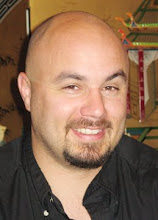
 Today it has been fifty years since my father died. On that cold winter night of February 10, 1960, he got up around two o'clock in the morning, went into the upstairs bathroom next to his bedroom, and took cyanide. There hasn't been a February 10th in those fifty years that I haven't thought of him and wondered why, wondered what my life and that of my family would have been like if he hadn't been depressed and decided to end his life, wondered what it was that made him decide to do it the night he did. What was the catalyst? What was the last straw? Or did he plan it for a long time and then just get up the courage to go through with it?
Today it has been fifty years since my father died. On that cold winter night of February 10, 1960, he got up around two o'clock in the morning, went into the upstairs bathroom next to his bedroom, and took cyanide. There hasn't been a February 10th in those fifty years that I haven't thought of him and wondered why, wondered what my life and that of my family would have been like if he hadn't been depressed and decided to end his life, wondered what it was that made him decide to do it the night he did. What was the catalyst? What was the last straw? Or did he plan it for a long time and then just get up the courage to go through with it? Like Leif, he gave no clues he was planning it. He left no note to explain it. Yet he had everything that Leif did not, a wife and family, a profession, an advanced degree, a home, friends, and he was not in debt, nor did he have any problems with substance abuse. And yet he was still so unhappy he took his life at the age of 46. I mourn for him and for the misery he must have felt, and wonder how he hid it so well from everyone around him except our mother, to whom he had said he felt "dead inside" and that he felt he wouldn't continue to succeed at his job because he couldn't concentrate and think up new research problems for his graduate students. The eternal question why will never be answered.
Did Leif inherit the genes for depression or bipolar syndrome? Was he doomed by some twist of genetic fate?
He looked like his grandfather. The photo of my father was taken in 1938 wen he was twenty-five years old. When Leif was twenty-five, he was in the army and I don't have many photos of him at that time that are straight-on head shots that I could compare with his grandfather, so the one in this post is from 2003 when he was 28. If you can imagine him with hair and without the beard, maybe you could see the resemblance.
They never knew each other. My father never saw a grandchild. I was his oldest child and was only twelve when he died. He died fifteen years before Leif was born, and yet in some minute and unintentional way, he may have contributed to his grandson's final fate.
Like my questions about my father's death, the questions about my son's will remain forever. I will not likely live fifty years beyond Leif's death, to be 110, but I will likewise never forget April 10th and never stop wondering what made him pull the trigger in the wee hours of April 9th.
I will always love my father and my son. I will always be glad they were in my life, my father for only twelve years, my son for thirty-three. And I will always miss them.






